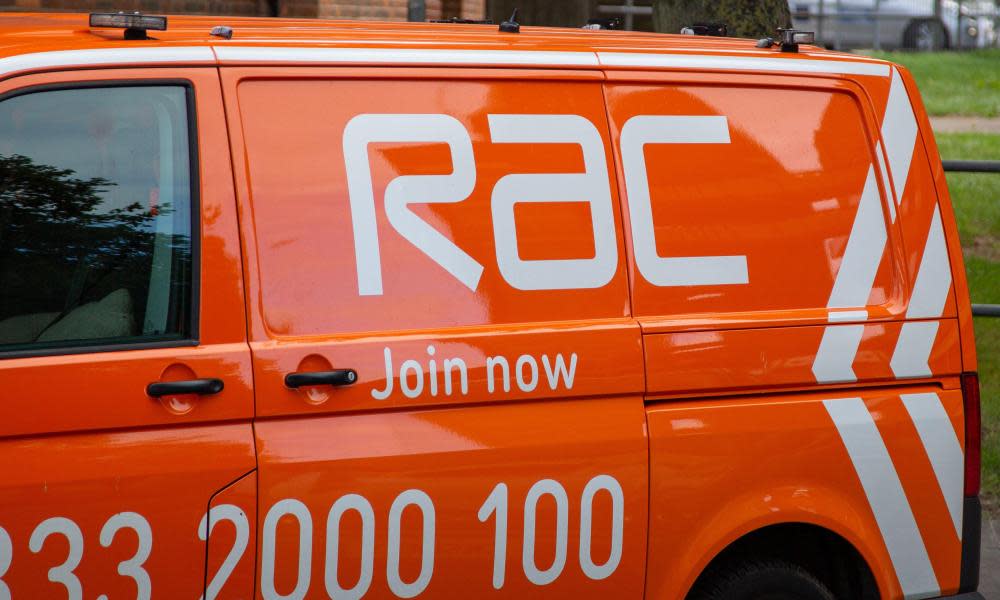Woman made to wait 20 hours for RAC rescue had to shelter with strangers

A 62-year-old woman had to spend the night in a stranger’s house when the RAC took 20 hours to recover her stranded car after it broke down in a remote country lane.
Harriet O’Brien said she was repeatedly promised help within the hour after her engine failed on a remote Gloucestershire lane an hour’s drive from her home.
Six hours later, she says she was told that a recovery vehicle was on its way and she would be charged for another call-out if she took a taxi home for the night before it arrived.
The patrol finally arrived at 11am the following morning, 20 hours after she had called the RAC – which promises customers “complete peace of mind” – for help.
“I received various texts telling me the RAC was working with a ‘trusted partner’ who would contact me, but no one did,” she said.
“I emphasised that I was a lone woman on a narrow country lane and each time I called, I was told I was next on the list. At 10.45pm when I’d been waiting eight hours, I was called by a driver sent from a recovery firm in Newport to say he couldn’t get his truck down the lane and that they’d send a smaller vehicle.
“An hour later, I was told the contractor needed permission from the RAC to send a smaller truck but no one was answering the phone. I tried calling the RAC myself for an hour but couldn’t get through.
“The recovery firm then told me they had no more trucks available that night. It was nearly 1am, there was no chance of a taxi and I had to wake a couple living on the lane who had been making me tea during my wait and they let me stay the night.”
O’Brien had to wait a further five hours the following morning after her case was erroneously de-escalated from priority status by the RAC.
Reports of long waits for breakdown recovery services have rocketed in the last three years, according to the complaints website Resolver, despite premium increases of up to 30% this year.
“What’s most frustrating is that it’s a relatively closed market to competition, because of the startup costs of competing with the RAC and AA who dominate it,” said a Resolver spokesperson, Martyn James.
Hilary Prosser and her husband were also left stranded overnight hundreds of miles from home when an RAC patrol classed a tyre puncture as a road traffic accident (RTA) and refused to assist.
Prosser called the RAC when a protruding flint wall punctured a tyre during a weekend in Cornwall and the couple were unable to remove the wheel nut. “I was told the expected wait would be 270 minutes and text messages arrived every 15 minutes stating that I’d get another update within 30 minutes,” she said. “The patrol arrived at 8.45pm after a wait of nearly five hours and told us that since the puncture was in the wall of the tyre it counted as an RTA and was not covered by my policy. He drove off, leaving us with a number for a flatbed truck company, and we had to find accommodation for the night.”
Prosser had to pay £270 for the car to be towed to a garage the following morning. “If I had not been paying £39.75 a month for breakdown cover, I would’ve gone straight to the local services saving a considerable amount of money and stress,” she said.
Staff lay-offs during lockdown have left breakdown insurance providers reliant on local garages to supplement their vehicle recovery patrols, but garages claim that low rates paid by breakdown insurers, high fuel costs and driver shortages have left them struggling to fulfil demand.
“Providing a service for the vehicle breakdown work providers can be financial suicide due to poor rates being paid,” said a spokesperson for the Association of Vehicle Recovery Operators.
“It is only recently that some providers have increased their rates in an attempt to ensure a timely service to their customers, but this has led to our industry cherrypicking the best paid jobs and ignoring the rest.”
The RAC said it has built “positive long-term relationships” with its contractors and is helping them to cope with rising costs. “The pandemic and the driver shortage have put enormous pressure on the independent recovery sector, so much so that it presents difficulties for all breakdown companies,” said a spokesperson.
Stranded motorists who endure long delays have no recourse if their breakdown insurer fails to resolve a complaint, because the provision of roadside assistance is unregulated. The Financial Ombudsman Service is therefore unable to consider complaints about poor service and the RAC is not signed up to an alternative dispute resolution scheme. The AA said it subscribes to the National Conciliation Service, although customers aren’t informed of that on its complaints webpage.
The RAC agreed to pay O’Brien compensation for her ordeal after the Guardian intervened.
A spokesperson said: “Unfortunately, as well as being extremely busy we wrongly assigned her breakdown to one of our contractors rather than a local patrol which meant we sent a recovery vehicle that was too big for the narrow road.”
The RAC said it had incorrectly classed Prosser’s puncture as an RTA and it has refunded her policy premiums and costs and paid for the new tyre.

